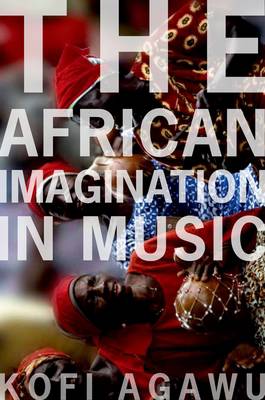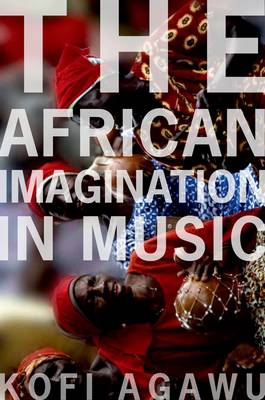
- Afhalen na 1 uur in een winkel met voorraad
- Gratis thuislevering in België vanaf € 30
- Ruim aanbod met 7 miljoen producten
- Afhalen na 1 uur in een winkel met voorraad
- Gratis thuislevering in België vanaf € 30
- Ruim aanbod met 7 miljoen producten
Zoeken
Omschrijving
The world of Sub-Saharan African music is immensely rich and diverse, containing a plethora of repertoires and traditions. In The African Imagination in Music, renowned music scholar Kofi Agawu offers an introduction to the major dimensions of this music and the values upon which it rests. Agawu leads his readers through an exploration of the traditions, structural elements, instruments, and performative techniques that characterize the music. In sections that focus upon rhythm, melody, form, and harmony, the essential parts of African music come into relief. While traditional music, the backbone of Africa's musical thinking, receives the most attention, Agawu also supplies insights into popular and art music in order to demonstrate the breadth of the African musical imagination. Close readings of a variety of songs, including an Ewe dirge, an Aka children's song, and Fela's 'Suffering and Smiling' supplement the broader discussion.
The African Imagination in Music foregrounds a hitherto under-reported legacy of recordings and insists on the necessity of experiencing music as sound in order to appreciate and understand it fully. Accordingly, a Companion Website features important examples of the music discussed in detail in the book. Accessibly and engagingly written for a general audience, The African Imagination in Music is poised to renew interest in Black African music and to engender discussion of its creative underpinnings by Africanists, ethnomusicologists, music theorists and musicologists.
The African Imagination in Music foregrounds a hitherto under-reported legacy of recordings and insists on the necessity of experiencing music as sound in order to appreciate and understand it fully. Accordingly, a Companion Website features important examples of the music discussed in detail in the book. Accessibly and engagingly written for a general audience, The African Imagination in Music is poised to renew interest in Black African music and to engender discussion of its creative underpinnings by Africanists, ethnomusicologists, music theorists and musicologists.
Specificaties
Betrokkenen
- Auteur(s):
- Uitgeverij:
Inhoud
- Aantal bladzijden:
- 388
- Taal:
- Engels
Eigenschappen
- Productcode (EAN):
- 9780190263218
- Verschijningsdatum:
- 2/03/2016
- Uitvoering:
- Paperback
- Formaat:
- Trade paperback (VS)
- Afmetingen:
- 155 mm x 234 mm
- Gewicht:
- 562 g

Alleen bij Standaard Boekhandel
+ 138 punten op je klantenkaart van Standaard Boekhandel
Beoordelingen
We publiceren alleen reviews die voldoen aan de voorwaarden voor reviews. Bekijk onze voorwaarden voor reviews.











